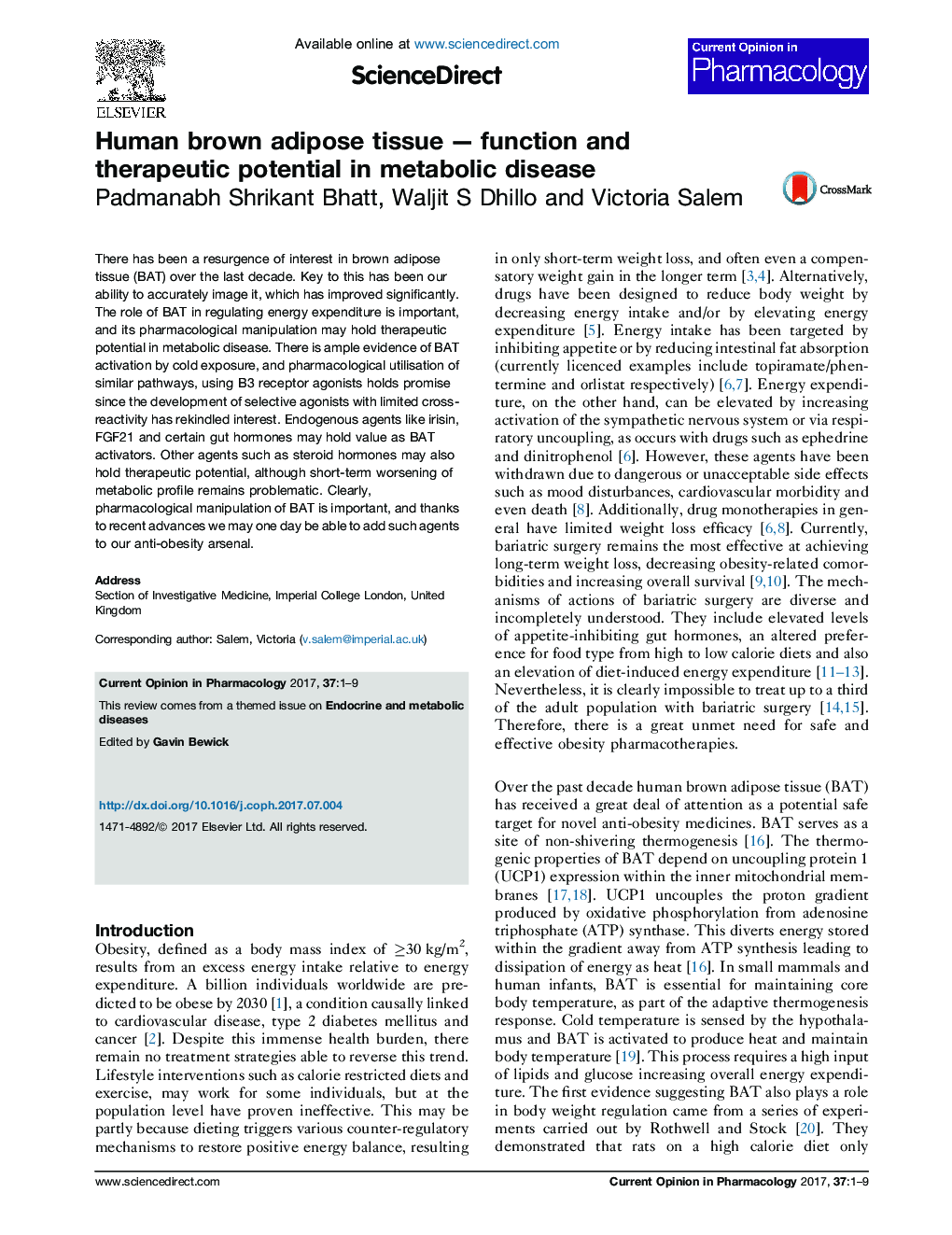| کد مقاله | کد نشریه | سال انتشار | مقاله انگلیسی | نسخه تمام متن |
|---|---|---|---|---|
| 5554232 | 1558111 | 2017 | 9 صفحه PDF | دانلود رایگان |

- BAT is physiologically important in human energy expenditure.
- B3 agonists & cold exposure are best studied but not clinically.
- Thyroxine, capsinoids & FGF21 show promise in regulating body weight through BAT.
- Further human trials are required before BAT activators enter clinical practice.
- Modern imaging i.e. thermal imaging, PET-CT and MRI, will enhance investigation of BAT.
There has been a resurgence of interest in brown adipose tissue (BAT) over the last decade. Key to this has been our ability to accurately image it, which has improved significantly. The role of BAT in regulating energy expenditure is important, and its pharmacological manipulation may hold therapeutic potential in metabolic disease. There is ample evidence of BAT activation by cold exposure, and pharmacological utilisation of similar pathways, using B3 receptor agonists holds promise since the development of selective agonists with limited cross-reactivity has rekindled interest. Endogenous agents like irisin, FGF21 and certain gut hormones may hold value as BAT activators. Other agents such as steroid hormones may also hold therapeutic potential, although short-term worsening of metabolic profile remains problematic. Clearly, pharmacological manipulation of BAT is important, and thanks to recent advances we may one day be able to add such agents to our anti-obesity arsenal.
Journal: Current Opinion in Pharmacology - Volume 37, December 2017, Pages 1-9